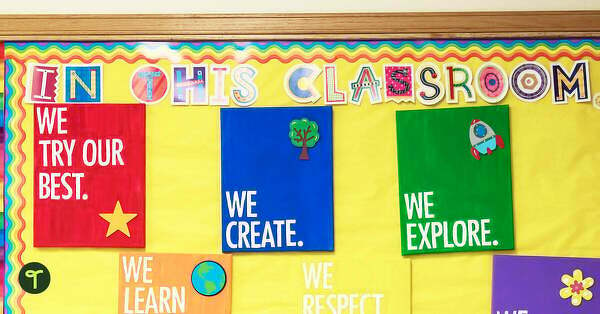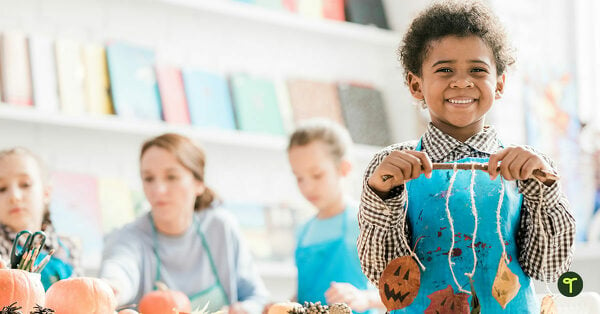Research has shown that there are many benefits to playing games in the classroom. When planning lessons, teachers should try to incorporate at least one game a day into one of the key learning areas as either a teaching and learning tool, assessment strategy or classroom motivator.
“Play is our brain’s favourite way of learning” – Diane Ackeman
When playing games, students become more engaged in their learning, taught content is reinforced and class positivity is increased.
In this blog we have outlined ten of the most important benefits students gain from playing games in the classroom. We have also selected some of our most popular Numeracy, Literacy, Technology, History and Fitness games for you to download and use in your own classroom.
10 Benefits to Playing Games in the Classroom
More Motivation
Playing games in the classroom increases overall motivation. By playing games, students become more motivated to learn, pay attention and participate in set tasks. Games help students to become a part of a team as well as take responsibility for their own learning. They can also be a great classroom management tool, helping to motivate a class.
They can also be a great classroom management tool, helping to motivate a class.
Controlled Competitiveness
Students can become very competitive in the classroom, especially boys. Games are a great way to control the competitiveness between peers.
By using games in the classroom, students can compete against each other whilst playing a game, then support each other during other learning activities.
Strategy Simulator
Most games require problem-solving strategies and planning. By applying a range of strategies in a game, students are able to use their working memory to solve problems, increasing their mental cognition. Stimulating the brain with strategies in a game can be a great brain workout!
Peer Positivity
Using games in a lesson as part of teaching and learning helps to create positivity around the lesson, motivating students with their participation and creating a positive attitude towards learning.
Games can also create a positive memory and experience of learning for students in the classroom.
Smaller Stress
Having to answer questions on a worksheet or produce a page of text can be quite daunting and stressful for some students. It can also create a negative perception of a students’ learning environment.
As an alternative to worksheets, games can be used as a less stressful way for students to demonstrate their knowledge, skill and understanding of a topic. Being less stressed will help students to have a more positive perception of their learning environment and give a true indication of their own learning.
Mighty Memory
Playing a range of content-specific games can increase memory! As they play a game, students need to remember important details about a topic but also use their working memory to think and act quickly.
Games that were made by the students can be some of the most effective. As students construct a game they are required to use their memory of specific content to create questions and answers suitable for the game, then use their memory of the topic to play the game.
Class Cooperation
Playing games in the classroom increases class cooperation. Classroom games can also be used as a team-building exercise!
Students need to work together as a team when playing as a whole class against the teacher, or in small team groups when playing games with each other.
In this way, students learn how to take turns, build respect, listen to others and play fairly.
Alert Attention
Playing games requires students to pay great attention to detail. As games can move quickly, when playing a game a student needs to be alert and attentive.
This attentiveness when playing a game can help students to stay focused on other tasks in the classroom throughout the day.
Friendly Fun
Playing games in the classroom is always great fun!
When playing a game, endorphins are produced that stimulate the brain and gives students a feeling of euphoria. This feeling of euphoria creates a great sense of happiness and excitement for students in the classroom, developing a positive learning environment.
New Knowledge
Games are a great tool to use in the classroom to consolidate new knowledge.
After teaching new content to the class, provide students with a game that will consolidate their understanding and make connections with what they already know. Asking students to create their own content-specific games can also be a great way to assess students at the end of a unit of work.
Take it Outside
Games aren’t just for inside the classroom. Going outside and enjoying the outdoors can also provide a bit of brain break for your students, all while consolidating a topic they are learning about!
Here’s a great example… all you need are some hula hoops, bean bags and some enthusiastic kids!
For more active games inside and outside the classroom, check out our Active Games Resource Collection.
Numeracy Games
[resource:178339][resource:170749][resource:54318][resource:58739]
Literacy Games
[resource:103097][resource:104576][resource:104035][resource:50006]
Technology Games
[resource:199767][resource:156278][resource:155761][resource:206552]
History Games
[resource:157881][resource:153372][resource:155839][resource:151696]
Fitness Games
[resource:107537][resource:159085][resource:107196][resource:9658]
Banner Image: Rawpixel.com/shutterstock.com







Comments